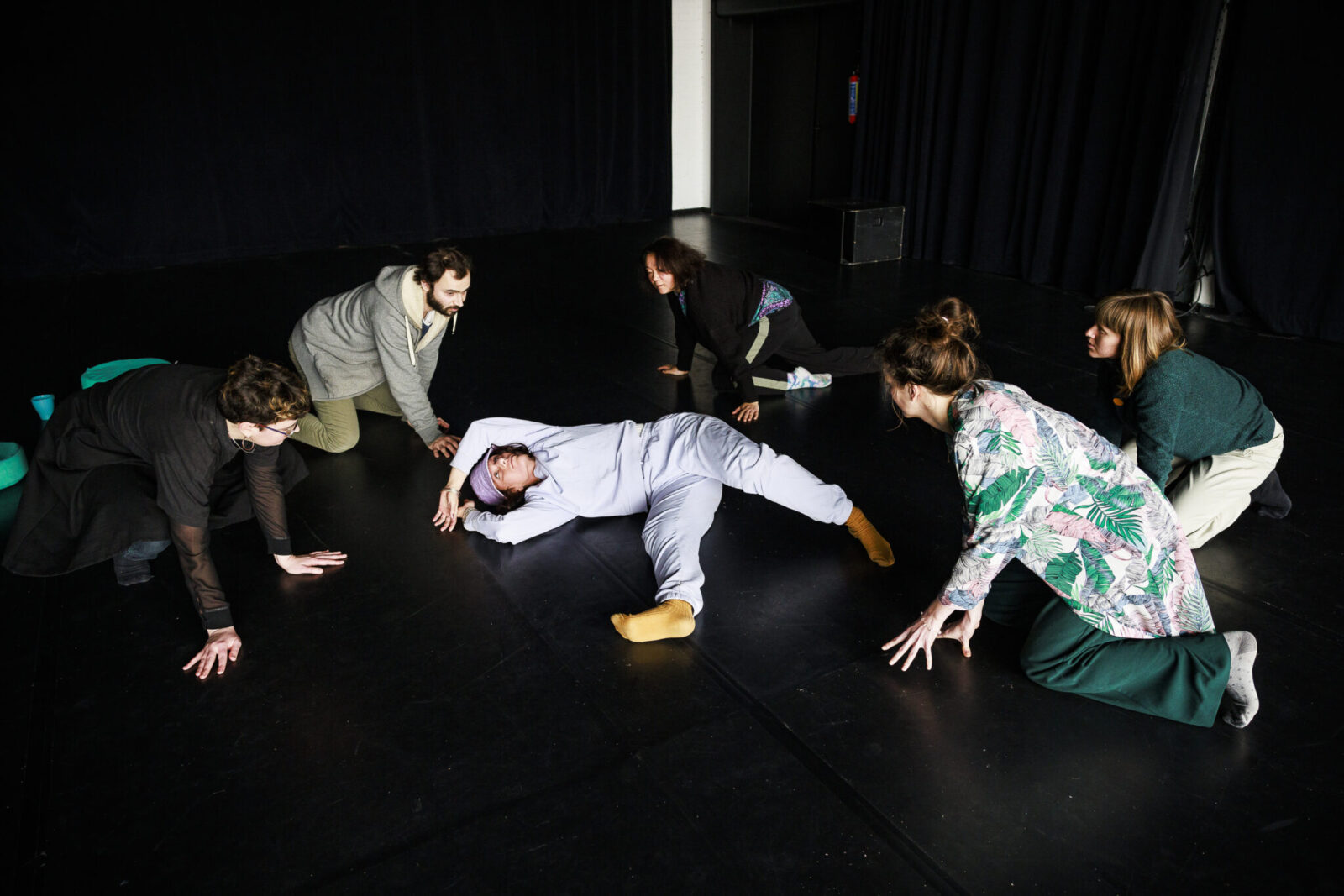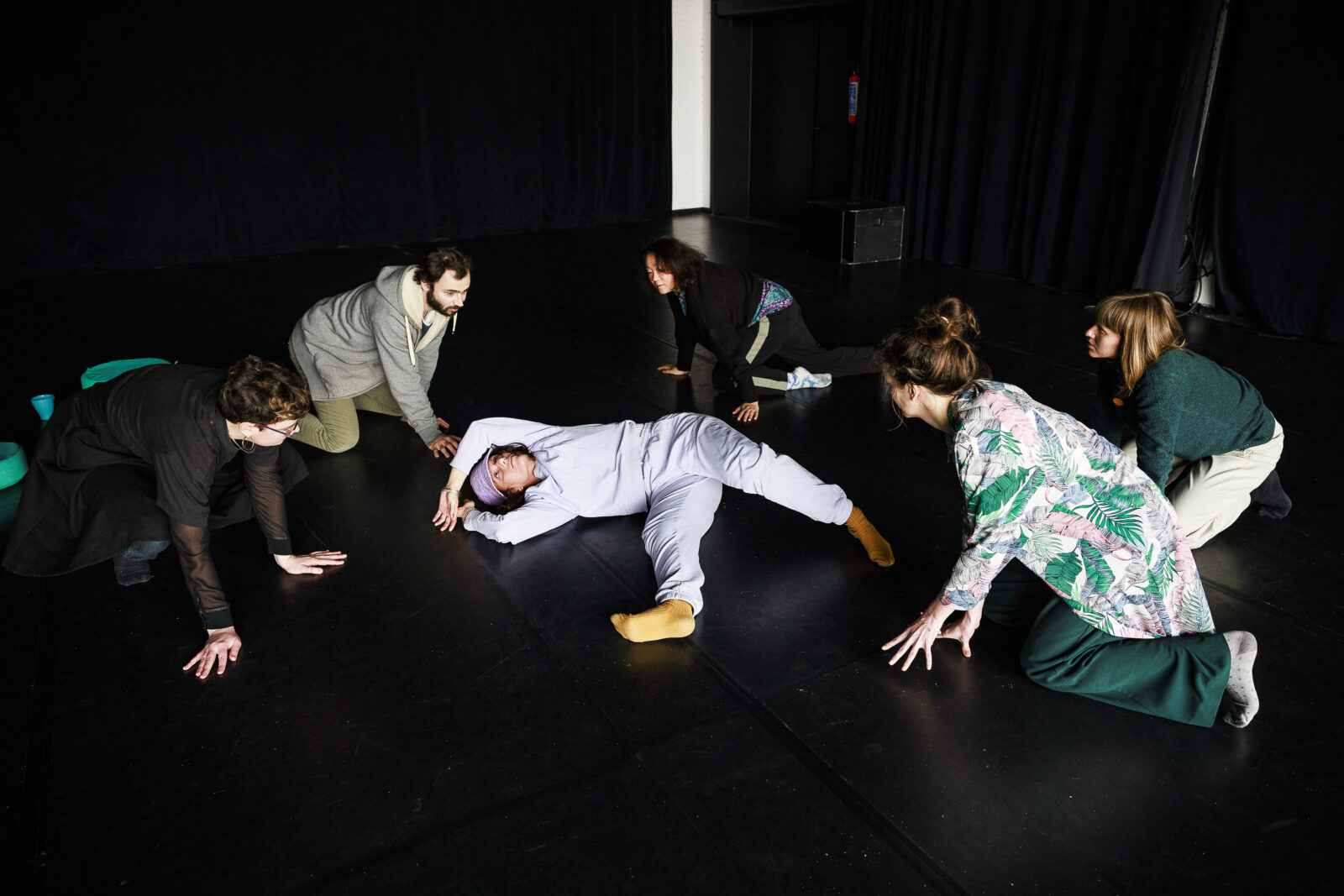CODE OF CONDUCT

CODE OF CONDUCT
detheatermaker is a development and production platform for new creators. Following from this we cooperate with a wide variety of people, coming from different positionalities and backgrounds. dtm thinks it is crucial to create a safe environment with every meeting for all people involved. This means we believe in the importance of care, responsibility, transparency and connection. To respect and according to these values we like to take the necessary time and we insist all those who are involved in our projects to respect the following rules of conduct. Please be aware that the code of conduct is a living, adaptable document. Adaptations to the code are possible so it suits our specific context, but should be agreed upon by everyone involved.
• Do not assume how a person experiences their identity. Make an effort to check in and ask for pronouns, specific needs and preferred language. Respect the lived experience of other people. Do not question the experience of others. detheatermaker does not condone demeaning, discriminatory and intimidating language or behavior.
• Be aware of each other’s (societal) positions and show mutual respect. Within a single group there will always be differences in terms of professional and interpersonal positionality. Instead of trying to hide or evade these differences, it is preferable to deal with them in a transparent manner. Take heed of the various social positions (in terms of for example gender, ethnicity, social class, physical mobility etc) and try to actively dismantle them. Reflect on your own privileges in respect to others and deal with them mindfully. An example of this is thinking through who is speaking when and for how long.
• Deal with power in a transparent manner. If you have a lot of organizational and professional power, use it with a sense of care for other people. Try to be as transparent as possible and communicate as openly as you can without withholding information. Ask yourself: who is deciding what and how can they account for the other people involved in the artistic process?
• Ask for permission (within the process). Want to make use of something belonging to someone else? Be it a text, an image, their body, name, ideas. Always ask permission first. Know that asking for permission takes the necessary time and space. Care to respect and create the necessary amount.
• (Always) ask permission. Respect the bodily and mental integrity of other people. Ask beforehand if you may touch them, if you may use something that is theirs etc. Within the entire context of detheatermaker-related events (shows, parties, diners etc) mutual agreement is of the highest importance, even if seems interpersonal or ‘private’.
• Define boundaries and make clear arrangements. If you start a long creative process together, make sure all the professional arrangements are made clear from the start. For example: how will communication happen, at what frequency, during which working hours. It is also important to make clear arrangements around each other’s corporeality and personal stories. If you notice these boundaries not being respected, voice your concern.
The same goes for processes with a shorter time span. Good and clear arrangements go a long way in making a healthy working environment. Define expected deadlines and working hours together. Voice your expectations.
• Respect resting time. Mind the need for rest, both of yourself and of others. Respect the assigned working hours and do not overreach them. This also goes for online contact and workcalls. Only in case of emergency and if postponing is wholly impossible, is it allowed to reach out after hours or during the weekend. Feeling ill? Then do not come to work. Do not question others when they state they are feeling ill. Ill is ill.
• Evaluate. Assess yourself, others and the work in progress. Agree to specific feedback moments together. Fruitful conversations on how and what you’re making, take time but are essential for good cooperation. Talk in your own name and respect each other's experience of the events. If you work ‘for’ someone, you’re always allowed to ask for clear feedback on your work and to further interrogate until the feedback is fully understood. detheatermaker plans evaluation moments, both during and at the end of each artistic process.
• Take responsibility. People make mistakes and might willingly or unwillingly cross personal boundaries. Take responsibility and respectfully talk to others about their behavior if this occurs. If someone confides to you that they feel as if they were not respectfully treated, do not get defensive but try to understand where the error occurred and apologize accordingly.
• Quitting is allowed. If you feel your boundaries are being crossed, you may always leave the space, conversation or process at hand. Projects at detheatermaker are not meant to feel boundless. If you push beyond the limits or yourself or someone else, any project, talk or situation may be reevaluated, put on hold or canceled. Decisions of this order can be made by the artist, collectively or by detheatermaker.
